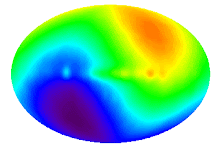The inside
story
Any story
about a human's microbes tends to invoke impressive numbers. Take the 10
trillion or so microbial cells living in the gut, which exceed the number of
human cells by 10 to 1. Between them, they harbour millions of genes, compared with
the paltry 20,000 estimated in the human genome. To say that you are
outnumbered is a massive understatement.
There is
strength in numbers; so much so, in fact, that some biologists regard a human
as a 'superorganism' — a community that adds up to more than the sum of its
parts. The body itself is merely one, albeit encompassing, component.
Microbes in the human gut may offer a wealth of information about health
and disease
Recent
studies have suggested that the gut microbiota may have a role in obesity
through the regulation of energy metabolism by several mechanisms (that is,
energy harvest from the diet, regulation of fat storage, lipogenesis and fatty
oxidation, modulation of afferent gastrointestinal peptide hormones, induction
of metabolic endotoxemia).
All these
findings lead to the concept of human beings as a ‘superorganism’ in which the
metabolism is the resultant of the integration of the host metabolic processes
with the microbiome ones. The symbiotic metabolic complexity of the individual
host–microbiome co-metabolism is likely to be reflected in a specific chemical
signature of biofluids.

沒有留言:
張貼留言